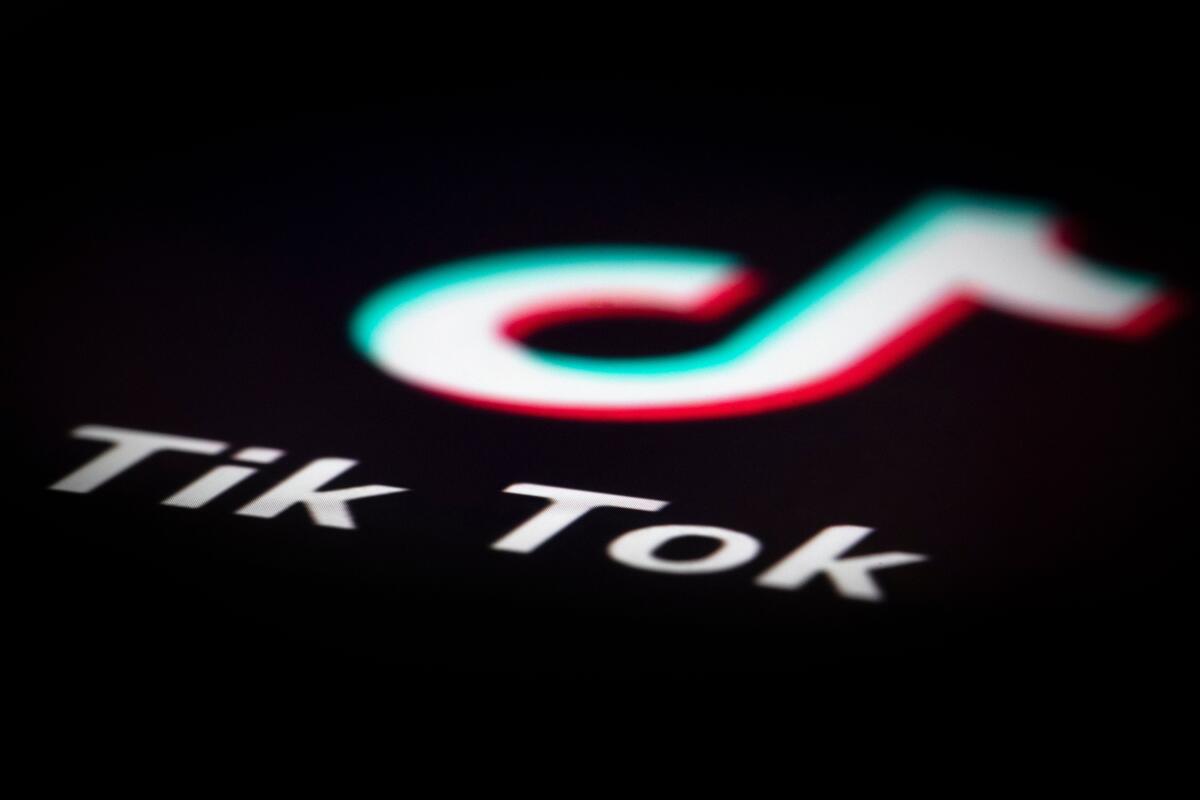To dodge Trump’s threatened TikTok ban, ByteDance hopes to sell U.S. operations

- Share via
ByteDance, the Chinese owner of TikTok, is racing to save the video-sharing app’s U.S. operations by making a last-ditch plea to the Trump administration to allow it to sell the unit to Microsoft.
ByteDance has told the White House it is willing to divest its U.S. operation in full through a sale, according to people with direct knowledge of the matter. The offer was first reported by Reuters.
The appeal came a day after President Trump vowed to ban TikTok in the U.S. and said a sale to any party — including Microsoft — would not be an acceptable solution.
“As far as TikTok is concerned, we’re banning them from the United States,” Trump told reporters on Air Force One late Friday, saying he could use executive powers to formalize the decision as early as Saturday. “We are not an M&A [mergers and acquisitions] country.”
In reportedly preparing an order to force TikTok’s Chinese parent company to sell it off, the Trump administration chooses a peculiar cyberdefense beachhead in an emerging battle over information espionage.
The comments left some involved in the talks between Microsoft and ByteDance fearing that any hope of a deal had collapsed Saturday.
However, others — including ByteDance executives — believe Trump’s intervention was a negotiating ploy intended to compel the Chinese group to sell the U.S. business in full and at a lower price than it had been holding out for from Microsoft.
There is no guarantee that Microsoft and ByteDance will reach a deal, but the two sides have been secretly discussing a transaction over the last few weeks, according to multiple people involved.
Microsoft President Brad Smith visited officials in Washington last month to see if a takeover of the business by the U.S. company would address the government’s concerns over TikTok, some of these people said.
Microsoft has a limited presence in social media and believes a deal would allow it to enter a category dominated by rivals such as Facebook, one person added.
In private, TikTok executives and investors have speculated that Facebook, which is preparing to unveil a rival product in the U.S. as soon as this week, has been lobbying the U.S. government behind closed doors to ban the app.
The exact price under discussion is not clear, but it is believed to be in the range of $15 billion to $30 billion, one person said. Another person said there has been no agreement on price or terms yet and characterized the discussions as “preliminary.”
It remains unclear how TikTok would separate its U.S. operations from its European and Asian arms.
The Committee on Foreign Investment in the U.S. has been undertaking a review of TikTok’s status in recent weeks on national security grounds.
The review by the committee, which is led by the Treasury Department, followed growing concerns over the company’s Chinese roots and data-gathering practices.
As well as considering an outright ban, and a spinoff to a U.S. buyer, the Trump administration has also weighed whether to place TikTok on the so-called entity list run by the Commerce Department, to restrict its ability to do business in the U.S.
In an apparent bid to assuage the concerns of its U.S. users, Vanessa Pappas, general manager for TikTok U.S., posted a video on TikTok on Saturday in which she said: “We’re not going anywhere…. We’re here for the long run.”
The social video app faces growing scrutiny from the U.S. government, rising competition from rivals like Facebook and the defection of top creators.
The company also put out a statement Friday saying: “TikTok U.S. user data is stored in the U.S., with strict controls on employee access. TikTok’s biggest investors come from the U.S.. We are committed to protecting our users’ privacy and safety as we continue working to bring joy to families and meaningful careers to those who create on our platform.”
ByteDance has also been in talks with a group of its existing investors, including Sequoia Capital and General Atlantic, about a deal to spin out TikTok. Some of those U.S. investors may be able to take minority stakes under the terms of the proposal put to the White House, one person said.
Microsoft could not be immediately reached for comment.
Financial Times writer Miles Kruppa contributed to this report.
© The Financial Times Ltd. 2020. All rights reserved. FT and Financial Times are trademarks of the Financial Times Ltd. Not to be redistributed, copied or modified in any way.
More to Read
Inside the business of entertainment
The Wide Shot brings you news, analysis and insights on everything from streaming wars to production — and what it all means for the future.
You may occasionally receive promotional content from the Los Angeles Times.












